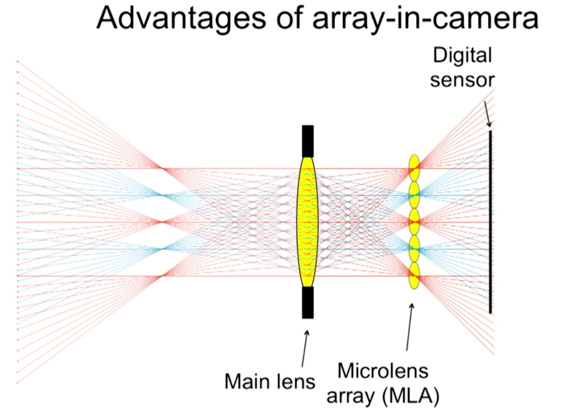Sam Tellman of the Lytro camera company thinks light field camera technology will be pervasive in a matter of five to eight years. Just what is light field photography? He explains in this presentation:
What is light field photography?
Light field photography allows for post-capture focus change and perspective shift with just one click of the shutter. Whereas darkroom and digital photography capture two dimensions, light field captures data beyond three dimensions. It does this by moving photography from optics to computation. Light field cameras are fitted with thousands of microlenses between the main lens and the sensor. These microlenses scatter the light before it hits the sensor. The data recorded by a light field camera preserves the direction of each ray of light. This fundamental shift in the way an image is recorded lets the user shoot first and focus later.
Though it’s a new idea for many of us, the term “light field” was coined in 1936, and the first camera using this technology was made in 1992. The first consumer-level light field camera was unveiled in 2012, and the technology is advancing rapidly.
What’s next in light field camera technology?
Compared to more familiar photography technology, light field photography is still in its infancy. Lytro, Inc., which developed the first consumer-grade light field camera, is working on increasing resolution in order to capture more depth in images. The company hopes to advance post-capture editing options so that photographers can edit using both the depth and spatial information in an image. Three dimensional light field video recording is also on the horizon.
As light field cameras become more popular, it’s likely that other companies will latch onto the technology and develop more products that can expand on what Lytro has already accomplished.
What do you think of light field photography?
Like This Article?
Don't Miss The Next One!
Join over 100,000 photographers of all experience levels who receive our free photography tips and articles to stay current:








Leave a Reply